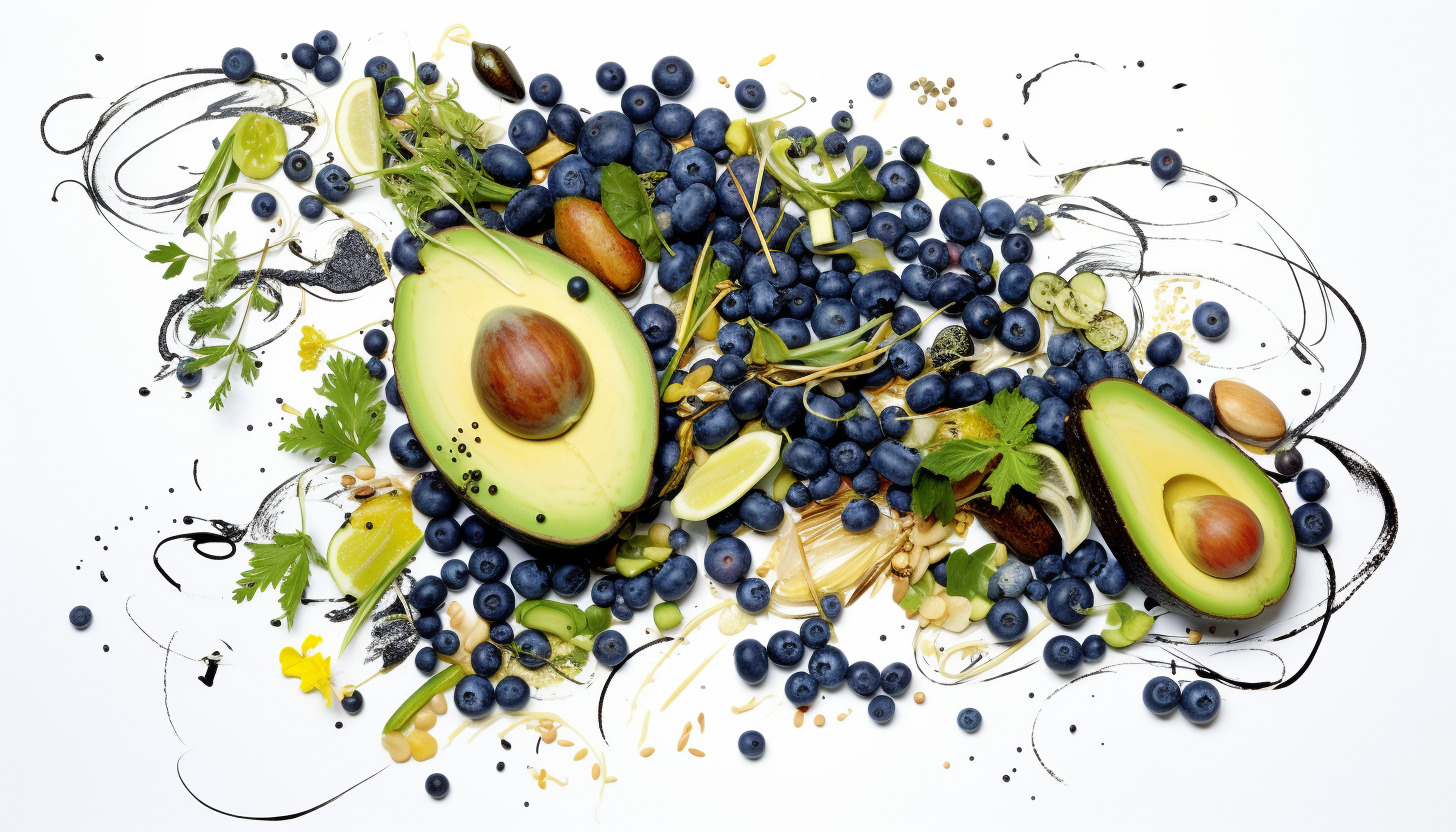Adiponectin is a game changer. In this article, we’ll explore what adiponectin is, why you should care about it, and how your food choices can influence its levels in your body. The goal? To give you the tools you need to improve your metabolic health, manage your weight, and enhance your overall well-being.
What is Adiponectin?
Adiponectin is a hormone produced by adipose tissue—also known as fat cells. But don’t let the origin fool you; this hormone is actually your ally in metabolic health.
Adiponectin plays a vital role in regulating glucose levels and breaking down fatty acids. When released into the bloodstream, it encourages your muscles to take up glucose and use it for energy, thereby reducing blood sugar levels.
Additionally, it helps in the process of fatty acid oxidation, which essentially means it assists in breaking down large fat molecules into smaller, more manageable units.
The hormone is particularly essential for insulin sensitivity. Higher levels of adiponectin are linked to an enhanced ability of the body to respond to insulin, which is critical for the regulation of blood sugar.
Notably, adiponectin also has anti-inflammatory properties and has been associated with a lower risk of cardiovascular issues such as heart disease.
The Adiponectin Paradox in Obesity
Here’s where things get a bit paradoxical. You’d think that if adiponectin is produced by fat cells, people with more fat would have higher levels. However, the opposite is true. Studies have consistently shown an inverse relationship between adiponectin levels and body fat percentage. In simpler terms, the more body fat you have, the lower your adiponectin levels are likely to be.
Why is this the case? The answer lies in the different types of fat cells: white fat cells and brown fat cells.
White fat cells primarily store energy, while brown fat cells are involved in burning energy.
Adiponectin levels are generally higher when brown fat cells are more active, which is often the case in leaner individuals.
Lower levels of adiponectin are associated with a decrease in the body’s ability to regulate blood sugar, higher inflammation, and increased cardiovascular risk—all common issues in obesity.
Understanding this inverse relationship is crucial for those looking to manage their weight, gain muscle, and improve their metabolic health. The good news? You can influence your adiponectin levels through diet and lifestyle changes, which we’ll delve into in the upcoming sections.
How Diet Affects Adiponectin Levels
Understanding the relationship between diet and adiponectin can be a game-changer for your metabolic health. As someone who has been on both sides of the weight spectrum, I can attest to the power of food in influencing hormones like adiponectin.
So, what should be on your plate if you’re looking to boost your adiponectin levels?
Macronutrients and Their Impact
Before diving into specific foods, let’s talk about the macronutrients—proteins, fats, and carbohydrates.
A balanced diet that includes a proper ratio of these macronutrients can positively influence adiponectin levels.
For example, diets rich in healthy fats and proteins have been linked to higher levels of this hormone, whereas excessive consumption of processed carbohydrates has been shown to lower it.
Specific Foods to Focus On
Here are some foods that have shown promise in increasing adiponectin levels:
Fatty Fish
- Salmon, mackerel, and sardines are rich in omega-3 fatty acids, which have been shown to increase adiponectin levels.
Nuts and Seeds
- Almonds, walnuts, and chia seeds are not only nutritious but also adiponectin-friendly.
Olive Oil
- Extra virgin olive oil, rich in monounsaturated fats, can help elevate adiponectin levels.
Berries
- Blueberries, strawberries, and other berries are rich in antioxidants and may help boost adiponectin levels.
Avocado
- This fruit is not only delicious but also rich in healthy fats that can raise adiponectin levels.
Whole Grains
- Foods like quinoa, brown rice, and whole-wheat bread can positively affect adiponectin levels. The fiber and complex carbohydrates in whole grains may contribute to this effect.
Legumes
- Lentils, chickpeas, and other legumes are rich in fiber and protein, which may help boost adiponectin.
Dark Chocolate
- A surprising entry, but the flavonoids in dark chocolate (with high cocoa content) have been suggested to have a positive impact on adiponectin levels.
Green Tea
- The catechins in green tea may help increase adiponectin levels. Drinking green tea or taking green tea extract has been linked to improvements in metabolic markers.
Leafy Greens
- Spinach, kale, and Swiss chard are rich in antioxidants that may help boost adiponectin levels.
Soy Products
- Tofu and tempeh can be included in your diet to influence adiponectin positively.
Spices
- Turmeric and cinnamon can be added to your meals for their potential effects on adiponectin. (Check out 5 Cheap Herbs That Boost Adiponectin Levels for Improved Metabolic Health too.)
Fruits
- Grapefruit and pomegranate can be included for their potential to raise adiponectin levels.
Understanding the foods that can influence adiponectin levels can be a powerful tool in your metabolic health toolkit. Incorporate these foods into a balanced diet, and you’re on your way to better metabolic health, weight management, and overall well-being. In the next sections, we’ll discuss foods to avoid and other lifestyle factors that can also play a role.
Remember, food is just one part of the equation, but it’s a part you can control every single day. Choose wisely, and your body will thank you.
Foods to Avoid for Optimal Adiponectin Levels
While we’ve discussed a plethora of foods that can positively influence your adiponectin levels, it’s equally important to be aware of what to avoid. Certain foods and ingredients can have a detrimental effect, lowering adiponectin levels and negatively impacting your metabolic health.
High Sugar and Processed Foods
- Foods high in sugar, especially refined sugars, can have a negative impact on adiponectin levels. This includes candies, pastries, and even certain breakfast cereals.
Trans Fats and Hydrogenated Oils
- These types of fats are often found in processed snacks, margarine, and fast food. Trans fats have been shown to lower adiponectin levels and should be avoided.
Soda and Sugary Drinks
- These beverages are not only high in sugar but also often contain artificial sweeteners and preservatives, which can adversely affect adiponectin.
Processed Meats
- Sausages, hot dogs, and other processed meats often contain high levels of saturated fats, preservatives, and sodium, which can lower adiponectin levels.
Fried Foods
- Foods that are deep-fried in unhealthy oils can lower adiponectin levels. Opt for air-fried or baked versions instead.
Alcohol
- Excessive alcohol consumption, particularly sugary cocktails and beers, can also lower adiponectin levels.
Refined Grains
- Unlike whole grains, refined grains like white rice and white bread have been stripped of their nutrients and fiber, and they may lower adiponectin levels.
Avoiding these foods can be just as important as including adiponectin-friendly foods in your diet. Making mindful choices can help you maintain a balanced approach to your metabolic health. Remember, it’s not about completely eliminating these foods but about limiting their intake and finding healthier alternatives.
By understanding both sides of the dietary coin—what to include and what to avoid—you can create a comprehensive strategy for managing your adiponectin levels. This strategy will not only help you in terms of weight management but also contribute positively to your overall metabolic health.
Stay tuned as we discuss other lifestyle factors like exercise, stress management, and sleep, which also play a crucial role in influencing adiponectin levels.
Lifestyle Factors that Affect Adiponectin
While food is a critical component in managing adiponectin levels, it’s not the only player in the game. A holistic approach to metabolic health incorporates other lifestyle factors as well.
Exercise
Regular physical activity has been shown to increase adiponectin levels. Whether it’s cardio, weightlifting, or even just a daily walk, exercise plays a pivotal role.
Stress Management
Chronic stress can lead to hormonal imbalances, including reduced adiponectin levels. Methods like meditation, deep-breathing exercises, and even just taking time off can be beneficial.
Sleep Quality
Poor sleep can affect various hormones, adiponectin included. Aiming for 7-8 hours of quality sleep can make a significant difference.
Alcohol and Smoking
As touched upon in the previous section, excessive alcohol can lower adiponectin levels. Smoking has a similar detrimental effect and should be avoided for multiple health reasons.
Conclusion
By incorporating these lifestyle factors into your routine, you can create a multi-pronged approach to improving your adiponectin levels and overall metabolic health.
Section 6: Making it Practical – A Sample Meal Plan
Taking all the information we’ve discussed so far, let’s turn it into a practical plan you can follow.
Breakfast
- Scrambled tofu with spinach and avocado
- Green tea
Lunch
- Grilled salmon with a side of quinoa and steamed vegetables
- A small bowl of berries for dessert
Dinner
- Lentil soup with whole-grain bread
- A side salad with olive oil dressing
Snacks
- A handful of almonds
- Slices of grapefruit
- Dark chocolate (high cocoa content)
Tips for Meal Prepping
- Prepare portions of quinoa, lentils, and vegetables in advance.
- Keep a stock of healthy snacks to avoid reaching for processed foods.
Grocery Shopping Tips
- Opt for whole, unprocessed foods whenever possible.
- Look for high-quality protein sources like fatty fish and legumes.
So here we are, at the end of our adiponectin deep-dive. You’ve got the knowledge, but remember, knowledge without action is just trivia. I had to learn that the hard way. Take it from a dad who wants to keep up with his kids and still feel young: tweaking your lifestyle for better adiponectin levels is a game you won’t regret playing.
So go ahead, toss that avocado into your salad and get moving—even if it’s been a while. Your body will high-five you in its own biochemical way.

